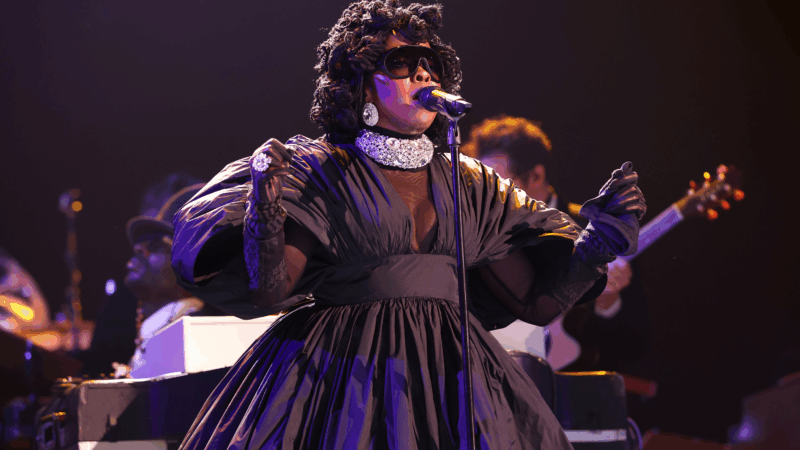Birmingham Law Enforcement Responds to Unease around Mass Shootings
Jan Hofman is the program director for the UAB School of Engineering and works near downtown Birmingham. Hoffman says despite news about mass shootings in Orlando and terrorist attacks in France, she feels safe working in the downtown area.
“I really have no concern for my personal safety downtown, and I never have,” says Hofman. “Especially now with all the growth that’s going on downtown, with all these little pockets of really fun places to be. I know it could happen. I don’t feel like it will happen. But if it does, there’s nothing I can do to stop it.”
Law enforcement though is responding to concerns over personal safety. Birmingham Police Chief A. C. Roper says he is keenly aware some worry these incidents can occur in Birmingham. The police department is trained for an active shooter situation. Roper says recent events have caused the police department to reassess where an attack may occur.
“You think about locations that are normally soft targets; maybe a transportation hub, airport, an airliner or a school,” says Roper. “You really never factored in a bar, a place where people just go and drink and have a good time and fellowship and celebrate. And so that changed the dynamic for us a lot.”
U.S. Attorney Joyce White Vance is based in Birmingham. She says in addition to maintaining close relationships with federal, state and local law enforcement agencies, it’s important to reach out to groups such as the local Arab and Muslim community. Since 2010, her office has meet with them to build trust.
“So they would understand that if they had a problem, whether it was criminal conduct where they were a victim or a civil rights violation or information that they wanted to share with us, that they would know us, that they would be comfortable with us,” says White. “We wanted them to understand that we were not targeting them. We were interested in learning about their culture and respectful of their culture.”
Vance says since the Orlando nightclub shooting in June, her office has been active in creating a relationship with groups which may be the victim of attacks.
“We’ve spoken over the last couple of weeks with groups in the LGBTQ community whose existence we were previously unaware of. And we’ve made, frankly, a lot of new friends in this very somber circumstance,” says White. “I committed to the community and we’re taking steps to put together a group that will meet that will discuss issues that are unique to the LGBTQ community in Alabama.”
Roper agrees with maintaining relationships with local communities.
“I just believe as a police department we serve the citizens regardless of color, ethnicity, national origin or religion, sex, gender. It doesn’t matter to us,” says Roper. “We’re the police department and we serve all of our citizens.”
Community relationships and additional training aside, a violent attack can happen anywhere at anytime. Citizens may be forced to learn how to be the first line of defense. Options range from private companies to state agencies. Alabama Law Enforcement Agency senior trooper Chuck Daniel teaches employees of private businesses how to protect themselves if someone enters their office intending to kill. His strategy is based on three words: run, hide or fight. He says what might have seemed impossible in the past should now become second nature.
“Don’t just give up. There’s still an opportunity, even though he’s breeched your security, there’s still an opportunity you can quite possibly, best case scenario, disarm the suspect by preparing ahead of time,” says Daniel. “When you’re barricaded in a room, especially in an office, there’s a lot of things that I could use to defend myself against an attacker. If I’ve got time I can barricade that door, shove all them cabinets in front of it.”
Daniel says citizens should follow several strategies. Be mindful of your surroundings. If you see something, say something. It all comes down to a mental “reset” – being aware of what is the new normal. Because what might have been unthinkable a few short years ago, should be top of mind when knowing how to save your life and the life of others in the event of a mass shooting.
Supreme Court appears split in tax foreclosure case
At issue is whether a county can seize homeowners' residence for unpaid property taxes and sell the house at auction for less than the homeowners would get if they put their home on the market themselves.
Top House Dem wants Justice Department to explain missing Trump-related Epstein files
After NPR reporting revealed dozens of pages of Epstein files related to President Trump appear to be missing from the public record, a top House Democrat wants to know why.
ICE won’t be at polling places this year, a Trump DHS official promises
In a call with top state voting officials, a Department of Homeland Security official stated unequivocally that immigration agents would not be patrolling polling places during this year's midterms.
Cubans from US killed after speedboat opens fire on island’s troops, Havana says
Cuba says the 10 passengers on a boat that opened fire on its soldiers were armed Cubans living in the U.S. who were trying to infiltrate the island and unleash terrorism. Secretary of State Marco Rubio says the U.S. is gathering its own information.
Surgeon general nominee Means questioned about vaccines, birth control and financial conflicts
During a confirmation hearing, senators asked Dr. Casey Means about her current positions and her past statements on a range of public health issues.
Rock & Roll Hall of Fame 2026 shortlist includes Lauryn Hill, Shakira and Wu-Tang Clan
The shortlist also includes a 1990s pop diva, heavy metal pioneers and a legendary R&B singer and producer.






